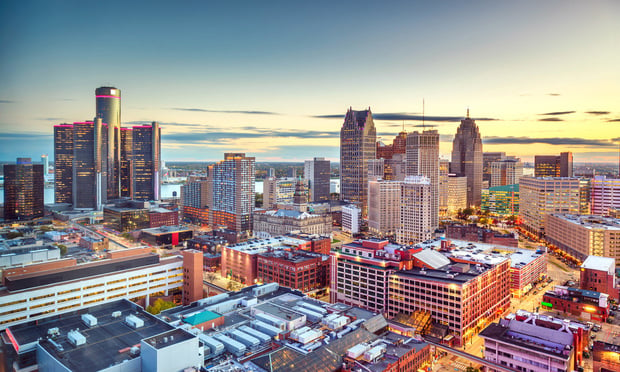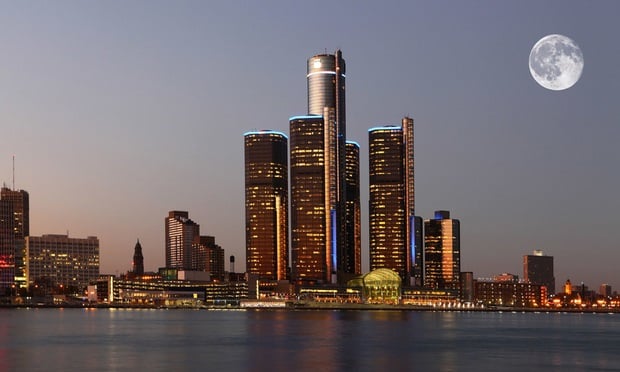DETROIT—Battered by the recession, municipal bankruptcy, and its share of a statewide plague of job losses, few metropolitan areas in the US have suffered as much as Detroit. The office market, however, has recently shown some sign of healing. The office vacancy rate fell to 24.9% during the third quarter of 2013, a level not seen since the fourth quarter of 2009, according to the latest Newmark Grubb Knight Frank market report. Slightly more than 354,000-square-feet was absorbed during the quarter, pushing year-to-date total positive absorption to about 1.1-million-square-feet. The trend reverses a slide that began in early 2007 in both the CBD and suburbs.
“Although vacancy matches 2009 levels, the office market today looks significantly different than it did pre-recession due to robust activity in the CBD over the past several quarters,” says Fred Liesveld, executive vice president, managing director. “In 2007, the Detroit CBD had a vacancy rate of 33% while today it stands at 26.5%. And now we are starting to see demand pick up in the suburban office market, which is great news for southeastern Michigan and underscores the overall improvement in the region.”
During the last three years, the CBD has experienced more than 1.2-million-square-feet of positive absorption. Companies such as Blue Cross Blue Shield, DTE Energy, Quicken Loans, Title Source, Chrysler, PricewaterhouseCoopers, Metro-West Appraisal Company and Agency 720 have recently leased space downtown. Detroit's CBD vacancy rate has dropped 8% and NGKF researchers say the next several years look just as positive.
“The CBD – which hasn't seen development activity since One Kennedy Square in 2006 – is expanding,” says Liesveld, pointing to Meridian Health Plan's planned construction of a $111-million, 16-story office building at Campus Martius, which should bring 1,200 employees into the new facility in 2017.
Another recent study by NGKF concluded that “the CBD could see a vacancy rate of 25% in 2014, a rate not seen since 2002.”
“What is most encouraging for Detroit is that healthy activity now extends beyond the CBD,” says Dan Canvasser, senior managing director. “The suburban market experienced significant vacancy increases as a result of the recession as well as the migration of some companies to the CBD. However, those trends are reversing, particularly in Troy, Southfield and Livonia.”
Want to continue reading?
Become a Free ALM Digital Reader.
Once you are an ALM Digital Member, you’ll receive:
- Breaking commercial real estate news and analysis, on-site and via our newsletters and custom alerts
- Educational webcasts, white papers, and ebooks from industry thought leaders
- Critical coverage of the property casualty insurance and financial advisory markets on our other ALM sites, PropertyCasualty360 and ThinkAdvisor
Already have an account? Sign In Now
*May exclude premium content© 2025 ALM Global, LLC, All Rights Reserved. Request academic re-use from www.copyright.com. All other uses, submit a request to [email protected]. For more information visit Asset & Logo Licensing.







